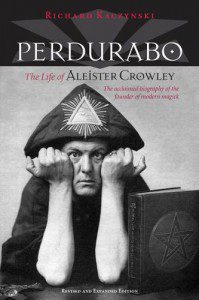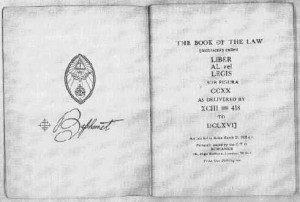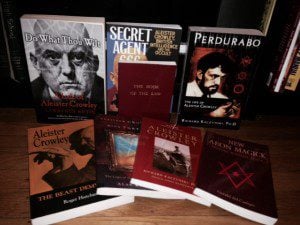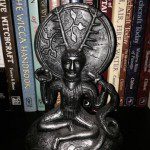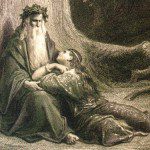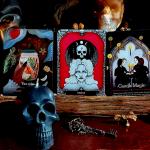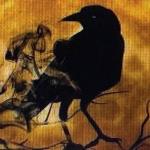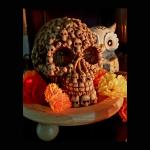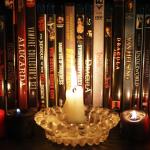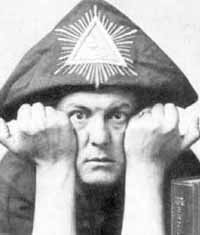 (An adept is generally defined as “a person who is skilled or proficient at something” but what about those of us who are not skilled or proficient in certain areas? As Pagans and/or Magickal Folk just how much knowledge should we posses about certain individuals? Is a thorough reading of all their works required or is a passing familiarity enough to get by on? The Non-Adept’s Guide is an attempt to provide the resources for a definition beyond Wikipedia, but not so much that the reader will be ready to write a college paper on the subject.)
(An adept is generally defined as “a person who is skilled or proficient at something” but what about those of us who are not skilled or proficient in certain areas? As Pagans and/or Magickal Folk just how much knowledge should we posses about certain individuals? Is a thorough reading of all their works required or is a passing familiarity enough to get by on? The Non-Adept’s Guide is an attempt to provide the resources for a definition beyond Wikipedia, but not so much that the reader will be ready to write a college paper on the subject.)
I first became acquainted with Aleister Crowley in the fourth grade. I was reading a book on Satanism and Demonology at the time and Aleister Crowley was the subject of a chapter in it. Being a rather sensationalist book designed for Middle School students, it made reference to Crowley as a Satanist and described him as being “The wickedest man in the world.” Over the next ten years I tried to stay far away from Crowley, but he cast such a wide shadow over pop culture that I couldn’t escape him.
At age seventeen I fell in love with Led Zeppelin and was determined to know as much about them as possible. To that end I picked up Stephen Davis’s Hammer of the Gods biography on the band. Jimmy Page was (and still probably is) a major devotee of Crowley, and no Zeppelin bio is complete without mentioning Page’s fascination with the man. Davis, like most authors not well versed in Crowleyana, still called Crowley a Satanist, but if Page liked him how bad could he be? (It took me a little while to come to that conclusion, upon first reading the book I actually threw it across the room upon discovering Page’s infatuation with Crowley.) In college I attempted to read up on Crowley but all the books on the man turned up missing in the campus library. I looked a few years later at the Library of Michigan with the same results.
When I converted to Modern Paganism and became interested in its origins I re-met Crowley for a third time. This go-around there was speculation that the first Wiccan Book of Shadows had been written by Crowley, and that perhaps he and Gerald Gardner (the first public Witch) had been members of the same Witch coven in the late Nineteenth Century. (Both of those things aren’t true by the way.) While Crowley wasn’t a Witch, his writings and thoughts on magick have been absorbed into Modern Witchcraft. He was also one of the greatest occultists of all time, and even founded a religion (Thelema). He rewrote the rituals of the Ordo Temple Orientis, and L. Ron Hubbard, the founder of Scientology, spoke of Crowley as a friend and a mentor (another falsehood by the way, but such was Crowley’s shadow).
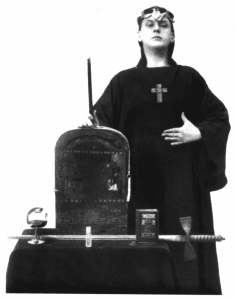 Periodically I’m asked by people just “how much” they should know about Crowley. It’s a difficult question to answer because actually reading Crowley can be difficult. He’s not writing for Pagans and he’s not writing for beginners, most of his writings on magick (we spell it with a “k” because that’s how Crowley spelled it) read as if they are written in code. Crowley is a challenge, but any well read Pagan or Magick User should still be familiar with the man, his works, and his shadow.
Periodically I’m asked by people just “how much” they should know about Crowley. It’s a difficult question to answer because actually reading Crowley can be difficult. He’s not writing for Pagans and he’s not writing for beginners, most of his writings on magick (we spell it with a “k” because that’s how Crowley spelled it) read as if they are written in code. Crowley is a challenge, but any well read Pagan or Magick User should still be familiar with the man, his works, and his shadow.
Where to Start
The easiest, most readable place to start when it comes to Crowley is with The Weiser Concise Guide to Aleister Crowley by Richard Kaczynski. The basics are all here in this slim volume. There’s an introduction to his magickal philosophies along with a brief biographical sketch from one of Crowley’s best biographers. Kaczynski also writes about the magickal orders started by and/or influenced by Crowley. If you are going to read one book on this list, make it this one.
I’m not sure it’s possible to separate Crowley from Thelema (the religion and magickal system he created), and any research into Crowley should include at least a basic primer on Thelema. To that end I suggest Living Thelema: A Practical Guide to Attainment in Aleister Crowley’s System of Magick by David Shoemaker, a mostly readable excursion into Crowley’s magickal system. I’m also a fan of New Aeon Magick: Thelema Without Tears by Gerald del Campo, which was one of the first books on Thelema given to me by a member of the O.T.O.
For fans of Pagan history a summary of Crowley’s life and thoughts is a must. In my case, I’ll also admit to being far more interested in Crowley’s life and influence than his magickal system. For those not wanting to dig too deeply I’d start with Aleister Crowley and Dion Fortune: the Logos of the Aeon and the Shakti of the Age by Alan Richardson. It hits the highlights of Crowley’s life and includes a lot of information about Dion Fortune to boot (she’ll get her own entry in this series in June). It’s written in an odd “Benjamin Button going backwards way” but if you can get past that it’s an adequate introduction to the subject. (Remember this is for the non-adept.)
I think Crowley’s life is important enough that even the casual reader should probably dig a little deeper. My favorite biography of Crowley is Richard Kaczynski’s Perdurabo: the Life of Aleister Crowley. It’s both thorough and readable, and is written by an occultist with a keen understanding of Crowley’s magickal philosophies. This is a big and daunting book, but Crowley is a big and daunting personality. He deserves a biography of this size and depth.
Though I didn’t like it as much Do What Thou Wild: A Life of Aleister Crowley by Lawrence Sutin is another strong biography on the subject at hand. I found Do What Thou Wilt’s continued reliance on excerpts from Crowley’s own works distracting in places, but that very criticism is probably a strength for others. Sutin’s book is also considerably shorter than Kaczynkski’s tome, and is often easier to find if you are still the sort who shops at bookstores.
Not enjoyed by many, but the first Crowley biography I ever picked up was Roger Hutchinson’s Aleister Crowley: The Best Demystified. There’s not much to say about this book other than it’s short and it’s not all that sympathetic towards Crowley. Still, the major pieces of his life are sketched out here, and that’s the point of this guide.
One of the most fascinating legends about Crowley was that he worked for British Intelligence on and off throughout his life. I generally dismissed such speculation until reading Secret Agent 666: Aleister Crowley, British Intelligence, and the Occult by Richard Spence. What a fun little book! Spence makes a great case for Crowley’s involvement in various clandestine operations. Did you know that Winston Churchill’s “V for Victory” sign flashed during World War II might have been conjured up by Crowley?
For the non-adept (and please remember Crowley lovers, this is not for you) reading Crowley can be a bit like visiting the dentist, extremely unpleasant. Crowley’s theories on magick are often best left to his interpreters, but that doesn’t mean Crowley’s works should be completely ignored. Crowley was more than a ritual magician, he was also a sometimes talented poet, and completely capable of writing readable fiction.
Crowley’s books and other assorted writings on magick are probably most important to our current discussion with the best place to start perhaps being Crowley’s 777 and Other Qabalistic Writings. At its best 777 is a volume of correspondences pertaining to the Kabbalah*. Like most of Crowley’s works dealing with magick it can be rather puzzle-like in places, but it’s still worth picking up for those with an interest in the subject. Today’s version of 777 is actually a collection of three different Crowley pieces edited by Western Occultist Israel Regardie. The most complete overview of Crowley’s magickal system from his own hand can be found in Magick: Liber ABA (Book 4) (also known as Magick in Theory and Practice). I can’t recommend it here because it’s truly for those who want a deeper sense of Crowley.
My first Crowley book from the man himself was The Book of the Law (written in 1904 but published decades later), allegedly dictated to Crowley by the god Aiwass and containing first hand revelations from the Egyptian deities Nuit, Hadit, and Ra-Hoor-Khuit. Many of Crowley’s core philosophies are to be found in this rather slim volume, most importantly the dictate “Do what thou wilt shall be the whole of the law.” The Book of the Law went on to become the founding text of Thelema, Crowley’s magickal philosophy.
Crowley’s works on magick and Thelema are often best experienced through his interpreters with my favorite being Lon Milo Duquette. Not only do I recommend DuQuette’s The Magick of Aleister Crowley: A Handbook of the Rituals of Thelema, I also recommend the recent Best of the Equinox series edited by Baba Lon. Many of Crowley’s most important magickal writings and rituals appeared in his journal, The Equinox, and Samuel Weiser (publisher) has recently gathered up the best of those articles and released them by subject. Volume one dealt with Enochian Magick, with volume’s two and three being dedicated to ritual and sex magick respectively.
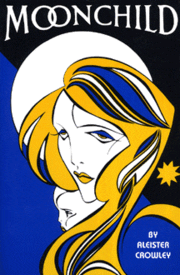 Many of our more modern interpretations of gods such as Pan and Dionysus have had their rough edges smoothed down a bit. That didn’t happen in the poetry of Aleister Crowley, and his poems such as Hymn to Pan and Dionysus contain a ferocity often lost by other poets. Not all of Crowley’s poems are masterpieces, but his Hymn to Pan remains popular in many Pagan circles. Crowley’s fiction takes a little longer to read than my few recommend poems, but if it’s something you are interested in slogging through Moonchild and the semi-autobiographical Diary of a Drug Fiend are the obvious places to start.
Many of our more modern interpretations of gods such as Pan and Dionysus have had their rough edges smoothed down a bit. That didn’t happen in the poetry of Aleister Crowley, and his poems such as Hymn to Pan and Dionysus contain a ferocity often lost by other poets. Not all of Crowley’s poems are masterpieces, but his Hymn to Pan remains popular in many Pagan circles. Crowley’s fiction takes a little longer to read than my few recommend poems, but if it’s something you are interested in slogging through Moonchild and the semi-autobiographical Diary of a Drug Fiend are the obvious places to start.
Crowley’s influence on the Modern Pagan movement is most noticeable in Modern Witchcraft. While eclectic Wicca has done much to remove the words of Crowley they still exist around the margins. Even “liturgies” such as Doreen Valiente’s Charge of the Goddess contain large amounts of Crowley. For those curious as to just how much Crowley is actually in the rituals and rites of British Traditional Witchcraft there are several resources both online and in print. Alan Richardson’s previously mentioned dual biography of Crowley and Dion Fortune contains a fascinating chart by Jerry Cornelius pointing out many of Gardner’s “borrowings” from Crowley**. In a similar vein The Influence of Aleister Crowley upon “Ye Bok of ye Art Magical” by Roger Dearnaley over on GeraldGardner dot com is also worth a read.
Ronald Hutton writes extensively about Uncle Al in Triumph of the Moon, not only providing a clear and concise biographical sketch, but also detailing the various influences Crowley would later have on Modern Witchcraft. Hutton’s summary of Crowley is a must-read for the non-adept.
I have raved before about Wicca Magickal Beginnings: Study of the Possible Origins of the Rituals and Practices Found in this Modern Tradition of Pagan Witchcraft and Magick Sorita d’Este and David Rankine but I’m going to do so again. The authors go through a great deal of Wiccan Ritual line by line sorting out the various influences found within it. That biggest influence is usually Crowley, and Rankine and d’Este provide a clear accounting of it. In addition there’s a great deal of information on how Crowley’s words were reinterpreted for use in Wiccan Ritual, great for people like me trying to ferret out every bit of meaning from the words used in ritual.
The Non-Adept Should Make Sure to Read . . . . :
The Book of the Law
Hymn to Pan
Ronald Hutton’s bit on Crowley in Triumph of the Moon
The Weiser Concise Guide to Aleister Crowley by Richard Kaczynski
The Magick of Aleister Crowley: A Handbook of the Rituals of Thelema by Lon Milo DuQuette or
Living Thelema: A Practical Guide to Attainment in Aleister Crowley’s System of Magick by David Shoemaker
I also strongly recommend a biography. None of this will make you an expert of course, but you’ll end up better off than most.
Love is the Law, Love under will . . . . .
*There are lots of ways to spell Kaballah, this is the easiest and currently most common.
**Gerald Gardner was given an OTO charter by Crowley in 1947. I like to argue that this gave Gardner a legitimate claim to “borrow” and adapt the writings of Crowley for use in the Witch-cult he would later propagate. For more on the charter along with Gardner and Crowley click here.


